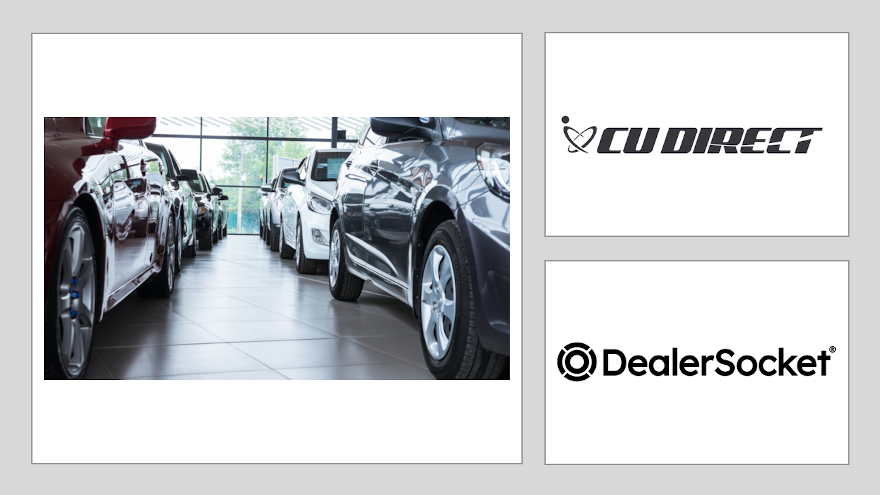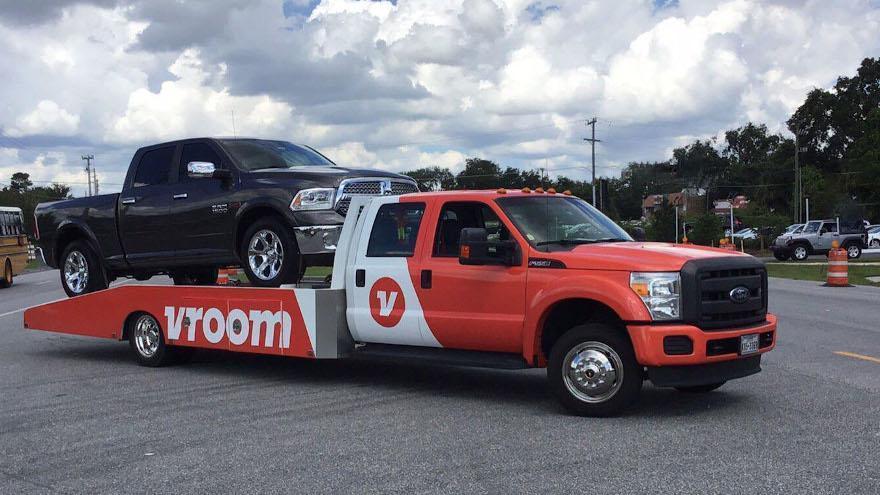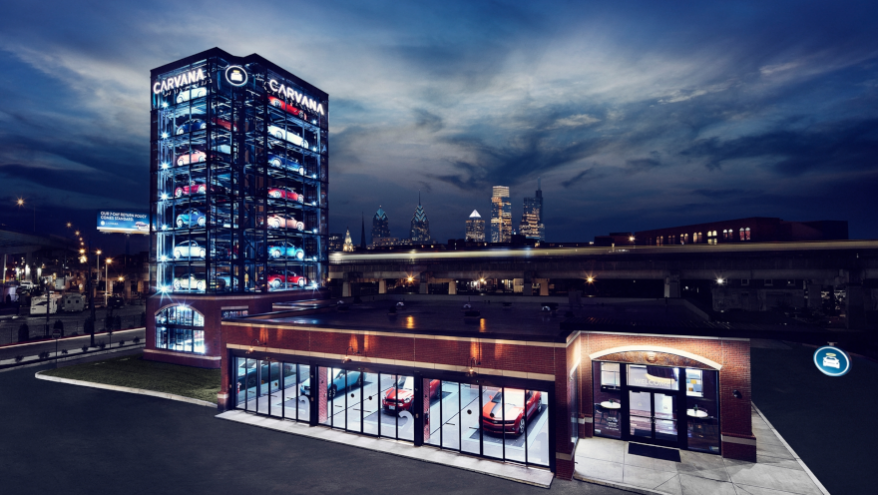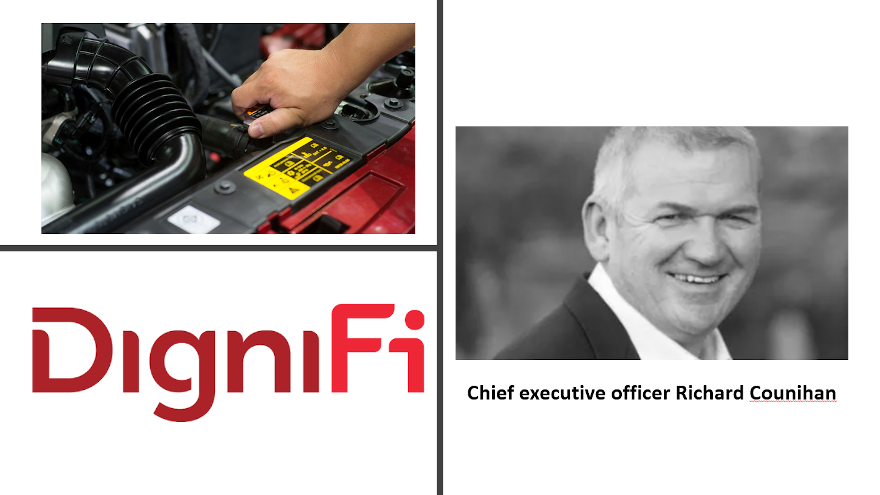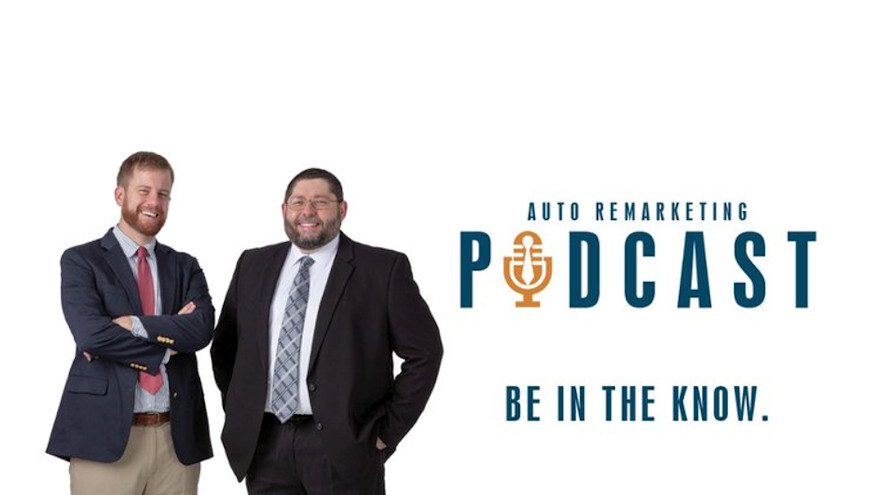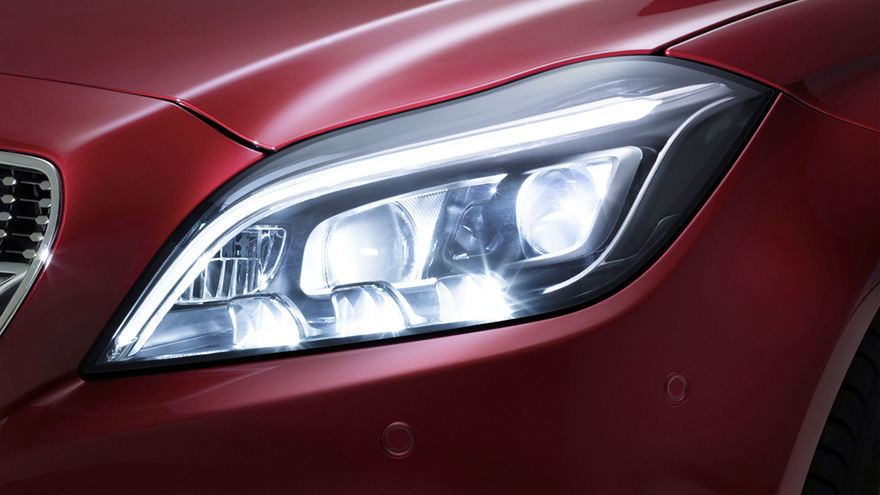One of the scenes in the 1967 film “Cool Hand Luke” includes a famous line that’s likely been turned into an array of social media content nowadays. It’s when Paul Newman is told, “What we’ve got here is a failure to communicate.”
Evidently, that’s also what’s happening to the interaction of dealerships and auto-finance companies as a result of the COVID-19 pandemic.
According to the J.D. Power 2020 U.S. Dealer Financing Satisfaction Study, disruption has been the name of the game in the automotive finance industry that has simultaneously been strained with day-to-day operations while being pushed to complete more transactions than ever digitally.
J.D. Power asserted that these changes — many of which dealers expect to be long-term — are forcing finance companies to evolve quickly in an increasingly digital environment.
“The pandemic has severely disrupted dealer-lender communication, with many dealers reporting that lenders were delayed or not available when they needed them, or not able to assist in a timely manner,” said Patrick Roosenberg, director of automotive finance intelligence at J.D. Power.
“While the effect of the pandemic has pushed more sales to digital channels, 55% of dealers are saying they expect at least one in five of their sales to be digital in the next year,” Roosenberg continued in a news release. “With lenders’ sales reps forgoing on-site dealer visits and the credit staff and funders working remotely, the need for consistent and reliable communication is paramount to dealer satisfaction.
“Lenders will need to step up their efforts to deliver high levels of service to help facilitate sales, whether those transactions are happening virtually or in the dealership. Knowledgeable, helpful and available sales reps, credit analysts and funders can help drive incremental business,” Roosenberg went on to say.
The 2020 U.S. Dealer Financing Satisfaction Study is based on responses from 3,960 dealer financial professionals. The study, which was fielded in August-September, measures dealer satisfaction in six segments, including
— Captive luxury – Prime
— Captive mass market – Prime
— Lease
— Non-captive national – Prime
— Non-captive regional – Prime
— Non-captive subprime
In the captive mass market segment, the study showed Volkswagen Credit ranked highest in overall dealer satisfaction with a score of 939 (on a 1,000-point scale), followed by Subaru Motors Finance (934) and Honda Financial Services (902).
In the national banking ranking, TD Auto Finance came in highest in overall dealer satisfaction with a score of 931, followed by Ally Financial (922) and Chase Automotive Finance (872).
In the regional banking listing, Citizens One Auto Finance ranked highest in overall dealer satisfaction with a score of 954, followed by Huntington National Bank (910) and Fifth Third Bank (879).
In the subprime space, the study placed Ally Financial highest in overall dealer satisfaction with a score of 913, followed by Chase Automotive Finance (878) and Capital One Auto Finance (820).
And in the lease category, Audi Financial Services topped the overall dealer satisfaction ranking with a score of 970, followed by Subaru Motors Finance (946) and Volkswagen Credit (941).
When it comes to digital financing through dealerships and finance companies, the genie is out of the bottle. The toothpaste is out of the tube. Pick whatever analogy you want to use, as J.D. Power put it: customers “won’t go back to the old way of doing things.”
According to the J.D. Power 2020 U.S. Consumer Financing Satisfaction Study, more vehicle buyers than ever have turned to digital channels when it comes to pre-transaction research and lining up financing options for a vehicle.
Study orchestrators explained that meeting with the dealership’s finance department — the one in which vehicle buyers are presented with the dealer’s recommended financing options and offered add-ons — is evolving to more of a digital experience and is being dictated by consumer demand.
J.D. Power also discovered a growing percentage are securing direct financing prior to their purchase. While some of this behavior has been driven by the COVID-19 pandemic, an increasing number of buyers say they prefer a digital origination process for their next vehicle purchase.
“The pandemic accelerated a trend toward digital auto loan origination that has been developing for some time,” said Patrick Roosenberg, director of automotive finance intelligence at J.D. Power.
“Many buyers who have secured financing digitally had a great experience and won’t go back to the old way of doing things — even when COVID-19 is no longer a factor,” Roosenberg continued in a news release.
“To improve satisfaction and lower the cost to serve during these changing times and beyond, providers need to build a robust digital platform that addresses borrower needs, from research and origination through account management and billing.”
Four other key findings from the 2020 study include:
• More consumers complete digital credit applications, and like it: Nearly one-third (32%) of auto loan borrowers completed a digital credit application, with 22% using the finance company’s website and 10% using a mobile app.
J.D. Power indicated the frequency of digital applications has increased 8 percentage points from last year. The average customer satisfaction score for those applying for an auto loan digitally is 887 (on a 1,000-point scale), while the average customer satisfaction score for those applying at a dealership is 842.
• A trend that signals staying power beyond the pandemic: A total of 40% of borrowers say they prefer at least part of the financing origination process to be digital when they purchase their next vehicle.
The number of borrowers who say they will apply for financing digitally (via website or mobile app) in the future is up 3 percentage points from 2019, while the number of consumers who say they will secure financing through the dealership is down 4 percentage points year-over-year.
• Direct financing gains traction, led by luxury segment: While 85% of auto-finance customers still secure their financing through the dealership, more borrowers than ever are pursuing direct financing.
J.D. Power indicated a total of 15% of participants in this year’s study secured direct financing, up 3 percentage points from a year ago. In the luxury segment, that number is up 3 percentage points to 26% of all eventual contract holders.
• Digital account management and bill pay improves customer satisfaction: A growing number of borrowers also are turning to digital channels for loan account management and bill pay.
During the past two years, J.D. Power use of finance company mobile apps for account management has increased 8 percentage points and use of the website has increased 2 percentage points, while offline account management has declined three percentage points.
The study also showed customers have the highest levels of overall satisfaction (884) when using finance company’s mobile app.
Finance company rankings
Lincoln Automotive Financial Services ranked highest in customer satisfaction among luxury brands with a score of 899.
Capital One Auto Finance (885) came in second and BMW Financial Services (881) finished third.
BB&T now Truist ranked highest among mass market brands with a score of 879. Capital One Auto Finance (870) and Ford Credit (870) finished in a tie for second place.
The J.D. Power U.S. Consumer Financing Satisfaction Study measures overall customer satisfaction in five factors, including:
— Billing and payment process
— Mobile app experience
— Onboarding process
— Origination process
— Website experience
The study was fielded in July and August and is based on responses from 10,103 customers who financed a new or used vehicle through an installment contract or lease within the past three years.
Luxury Rankings
Lincoln Automotive Financial Services: 899
Capital One Auto Finance: 885
BMW Financial Services: 881
Infiniti Financial Services: 876
Lexus Financial Services: 876
Audi Financial Services: 875
Bank of America: 866
Wells Fargo Auto: 866
Segment Average: 886
Mercedes-Benz Financial Services: 862
Chase Automotive Finance: 850
Acura Financial Services: 849
General Motors Financial: 849
Mass Market Rankings
BB&T now Truist: 879
Capital One Auto Finance: 870
Ford Credit: 870
Honda Financial Services: 866
Bank of America: 860
General Motors Financial: 859
Chase Automotive Finance: 857
Southeast Toyota Finance: 855
Ally Financial: 853
Segment Average: 850
NMAC: 847
Toyota Financial Services: 845
Hyundai Motor Finance: 842
Wells Fargo Auto: 839
TD Auto Finance: 836
Chrysler Capital: 834
Kia Motor Finance: 833
U.S. Bank: 832
Volkswagen Credit: 831
PNC Bank: 823
Huntington National Bank: 822
Fifth Third Bank: 811
Citizens One Auto Finance: 805
Santander Auto Finance: 801
CU Direct recently integrated with DealerSocket’s CRM in an effort to boost performance for both credit unions and dealerships.
As a result of the collaboration, CU Direct has expanded its CUDL auto financing platform’s DMS/CRM integration solution to include DealerSocket.
The company explained the system integration with the CUDL platform is designed to minimize the need for dealers to double enter data, better simplifying and streamlining the entire application process, while allowing more opportunities for quicker financing solutions.
“The new integration not only allows dealers to tap into CUDL’s credit union network — which, collectively, represents one of the industry’s top auto finance sources — it creates a seamless workflow within DealerSocket’s CRM that streamlines the credit application process for dealers and ultimately improves the experience for their customers,” said Darren Harris, executive vice president and general manager of retail solutions at DealerSocket.
“Having that access also means keeping those opportunities in one place, making it easier for sales teams to take advantage of the CRM’s marketing engine for follow-up and ownership lifecycle campaigns,” Harris continued.
The companies also highlighted the new system integration with DealerSocket’s CRM can provide a number of key advantages for dealerships, including:
• Improved transaction times and streamlined workflows with centralized and secured management of all customer opportunities.
• Pushing deals from DealerSocket directly into CUDL system
• Improved CSI with less customer time in the F&I office
• Improved capture of customer financing with access to the nation’s largest credit union network.
• Elimination of double entry with a direct push of customer credit and vehicle of interest details to the CUDL platform.
CUDL can connects financing providers to 15,000 dealers nationwide. Collectively, the 1,100 credit union partners on the CUDL platform have been the nation’s leading auto financing source since 2017, according to CU Direct.
“As the lending landscape and consumer expectations continue to evolve, we recognize the value and need for delivering a simplified, streamlined application process for dealers and their customers,” CUDL product director Marty Simons said.
“As a result, we’re excited to partner with DealerSocket to provide dealers with a faster, enhanced application process, paving the way for an improved customer experience,” Simons went on to say.
Companies that build commercial fleets with the most efficient vehicles available and financed by BBVA USA now can save in another way.
The Sunbelt-based financial institution on Thursday unveiled its second product geared toward environmental sustainability, announcing a rate discount on secured term loans for fuel-efficient commercial vehicles.
BBVA USA said the loan provides a 0.75% rate discount for commercial hybrid, electric, natural gas or fuel-cell vehicles. The announcement comes on the heels of a BBVA USA commercial real estate product launch that focuses on sustainability, a key pillar of the bank’s five-year strategic plan.
“We’re confidently moving forward on products that will both support our small business clients’ financial health and help them contribute to securing an environmentally sustainable future,” BBVA USA small- to medium-enterprises network executive Elizabeth Dobers said in a news release.
“These product launches are significant steps in the right direction for our small businesses and communities. I’m extremely proud of this tremendous start, and look forward to continuing to move down this path beyond 2020,” Dobers continued.
Commercial clients are eligible for the secured term loan rate discount when financing commercial vehicles through BBVA USA from a licensed dealer. Potential benefits also include competitive low fixed rates and terms up to five years.
In addition, the institution said commercial clients who select auto debit payments with a BBVA Business Premium Checking account can receive an additional .25% rate discount.
Officials added healthcare providers can receive an additional .15% rate discount.
Commercial clients must apply by Dec. 31.
“We want to make environmental sustainability, and the steps toward that goal, convenient for our commercial clients and their overall operations,” BBVA USA small business credit products and processes manager Stan Demarest said.
“When we develop these products, we take into account not only environmental sustainability, but how we can make it easy for these businesses to save money in a time where every dollar counts,” Demarest said.
“On BBVA’s side, we want these products to continue to advance the bank's overall strategy and hit measurable business and sustainability targets for our overall bottom line,” said.
In September, the bank launched a sustainability-focused commercial real estate loan for clients across its footprint, marking a milestone in the bank's new five-year strategic plan implemented in January.
The loan allows small business owners to receive a discount of 1% (up to $10,000) of their loan amount toward closing costs if they buy or build an energy-efficient building or renovate an existing building to improve its energy efficiency.
Within a week of expanding its financial commitment to Carvana, Ally Financial made a move with another company in the digital-retailing space: Vroom.
On Tuesday, the ecommerce platform for buying and selling used vehicles announced an extension of its $450 million inventory financing agreement with Ally.
According to a news release, Ally has provided Vroom with floorplan financing since 2016. The amendment extends the original agreement from March 2021 to September 2022.
“We have seen tremendous growth in our business and overall demand as consumers increasingly shift to online buying and selling options,” Vroom chief financial officer Dave Jones said.
“We’re thrilled to have Ally’s continued vote of confidence through this extended agreement, giving us the ability to increase the depth and diversity of our inventory and scale our business for years to come,” Jones continued.
Doug Timmerman, president of auto finance for Ally, added, “Automotive retailers come to Ally because our extensive auto experience enables us to find solutions that help them scale.
“Vroom has made great strides this year and we’re excited to extend our financing relationship to continue supporting the company’s inventory acquisition efforts and growth strategy,” Timmerman went on to say.
Ally’s involvement with Moguls in the Making competition
In other company news, Ally also is involved with Moguls in the Making, a business plan pitch competition that offers Historically Black College and University (HBCU) students an opportunity to learn and practice vital skills.
The second annual competition will take place virtually Wednesday through Sunday. This event is presented by Ally, Thurgood Marshall College Fund (TMCF) and entertainer and entrepreneur Big Sean’s foundation, the Sean Anderson Foundation (SAF).
Officials said the event will showcase the diversity of ideas, thoughts and experiences these students can offer the business world.
Moguls in the Making gives 50 students — grouped into teams of five from 10 HBCUs — an opportunity to develop and present business plans aimed at solving key issues in the context of today’s economic and social climate. Winners receive scholarships and internship opportunities with Ally.
According to a news release, six of the 2019 Moguls in the Making participants have joined Ally as full-time employees.
“Moguls in the Making is an impactful way to celebrate the talent of HBCU students and to support a diverse pipeline of candidates whose contributions are critical to making both our company and our communities stronger,” Ally Financial chief executive officer Jeffrey Brown said. “I am inspired by what this program has helped us achieve and hope it can serve as a model for other organizations seeking to identify and nurture diverse talent in their businesses, as well.
“Our continued work with TMCF and HBCUs across our nation is a key element of our continued focus on creating a world-class culture that celebrates the power of diversity and inclusion. We are firm believers that if we can advance our company, we can advance our nation, too,” Brown continued.
Ally said the business case for diverse workforces is clear. In 2019, companies in the upper quartile of ethnic and cultural diversity of their executive teams outperformed those in the fourth quartile by 36% in profitability, according to a report by McKinsey & Co.
The Moguls in the Making program has already helped Ally expand its diverse pool of young talent, while amplifying awareness of the vital role HBCUs play in building Black middle and upper classes.
Ally noted that HBCUs are responsible for 22% of current Black bachelor degrees and, despite the fact that HBCUs account for just 3% of four-year nonprofit colleges, their alumni account for roughly 80% of Black judges, 50% of Black lawyers and doctors, and their students account for 25% of Black undergraduates who earn degrees in STEM.2
Ally is a 14-year supporter of TMCF, one of the largest organizations exclusively representing the Black college community. TMCF also recognized Ally’s Brown as CEO of the Year in 2019.
For last year’s Moguls in the Making competition, the two organizations teamed up for the first time with the Sean Anderson Foundation, which is dedicated to improving the education, health, safety and well-being of school-aged youth and their families.
“We are excited to work with Ally Financial and the Sean Anderson Foundation once again, to showcase the genius and talent of our HBCU students,” said Harry Williams, president and chief executive officer of the Thurgood Marshall College Fund. “Moguls in the Making is a unique opportunity that will provide our students with the opportunity to excel in the business world.”
Big Sean added, “I’m proud to be a part of this program with Ally. I hope we stay at this for years to come. It’s exciting to positively impact these students’ lives from all over the country, who are the next generation of forward thinkers, and to see them step into their power and work as a unit successfully.”
The top 50 students of the more than 570 applicants from across the country will come together virtually for four days to compete for prizes. Students hail from 10 HBCUs, including:
— Alabama A&M University
— Bowie State University
— Coppin State University
— Florida Agricultural and Mechanical University
— Hampton University
— Morehouse College
— Morgan State University
— North Carolina Agricultural and Technical State University
— University of Arkansas at Pine Bluff
— Virginia State University
Students will represent their schools in teams of five tasked with developing and pitching business plans across 10 industries that support economic mobility in the midst of the pandemic and social unrest.
Ally mentors and team coaches, including six 2019 Moguls in the Making participants, will work with the students to help formulate their plans. Prominent mentors will be available to teams as a resource on their industry. Students also will have the opportunity to virtually attend fireside chats with business leaders.
The event will culminate Sunday when the teams will present their business plans to a panel of judges consisting of
— Stacy Spikes, founder of Urbanworld Film Festival
— TD Lowe, partner at 42Phi Ventures
— Lule Demmissie, president, Ally Invest
— Andrea Brimmer, chief marketing and public relations officer, Ally
— Jason Schugel, chief risk officer, Ally
The top three teams will receive prizes. First prize includes internships at the Ally Design Concept Studio, a $10,000 scholarship and much more.
To learn more about the program, go to this website.
Carvana is aiming to retail 2 million used vehicles.
And with more committed resources from Ally Financial arriving on Tuesday, the online retailer is confident of reaching that goal.
Carvana announced a $1.0 billion increase to its current loan sale program with Ally Financial, demonstrating what the company called the “success” of the previous increase and extension of the facility completed earlier this year.
Carvana pointed out this increase represents a total of $3.0 billion in commitment to fund its originations. Ally initially made $2 billion available in March.
In addition to the increased contract purchase commitment, Ally Financial also has increased its commitment to provide funding through Carvana’s inventory floor plan from $950.0 million to $1.25 billion and has extended the facility from October through March 2023.
The company explained this commitment from Ally will allow Carvana to continue increasing the number and diversity of its inventory, providing consumers with an even broader selection of vehicles to choose.
“Ally has been with us from very early on when we were selling just a couple hundred cars per month,” Carvana founder and chief executive officer Ernie Garcia said in a news release.
“I’m confident Ally will continue to play an important role as we make progress toward our goal of selling 2 million vehicles. We are proud to have their support and continue to expand our relationship,” Garcia continued.
Doug Timmerman, president of auto finance for Ally, added, “Our goal is always to find the most effective ways to meet the specific needs of each of our dealer customers and help them grow their businesses.
“The strong relationship we’ve built is a testament to Carvana’s unique digital platform and our focused dedication and expertise in the auto retail business,” Timmerman went on to say.
This summer, DigniFi gained nearly $300 million in resources to boost its vehicle-repair financing platform and landed a relationship Cox Automotive to launch FlexPay, an easy-to-use payment option offered directly through the Xtime platform.
On Thursday, DigniFi’s momentum continued with an endorsement from Volkswagen of America as a preferred vendor in its eConnect Flexible Payment Program.
Volkswagen’s 636 U.S. dealerships now can partner with DigniFi to offer service center customers access to financial flexibility in these trying times. DigniFi can enable customers to apply for short-term financing on their smartphone and receive an instant decision.
On average, dealerships that offer DigniFi increase service revenue by 20% annually, according to the company.
Today amidst the COVID-19 pandemic, DigniFi acknowledged that young working Americans increasingly depend on their vehicles for safe mobility. More driving entails more maintenance, and a recent LendingTree study found that 43% of all U.S. drivers, and 58% of millennials, have gone into debt as a result of vehicle trouble.
Furthermore, that survey showed 21% of these drivers accumulated this debt after the pandemic began. Nearly six out of 10 Americans, including 71% of millennials, have skipped necessary repairs because they cannot afford them, according to that survey.
Perhaps if these individuals seek repair assistance at Volkswagen dealership, they might be able to get assistance through DigniFi’s platform.
“COVID-19 has left young people in such a state of financial insecurity that many are choosing to skip repairs that are vital to the longevity and safety of their vehicle,” DigniFi chief executive officer Richard Counihan said in a news release. “In partnership with Volkswagen, we are changing that.
“We applaud Volkswagen for supporting flexible payment options that serve customers in their time of need,” Counihan continued.
DigniFi’s financing platform can help drivers afford repairs by providing access to flexible payment options and 0% financing for those who qualify. Customers complete the financing application on their personal smartphone in just a few minutes, ensuring a safe, contactless process for dealership staff and customers.
The company said approval rates on DigniFi’s platform are two times higher than the average credit card, serving customers across a wide range of FICO scores.
To date, more than 5,000 dealerships and auto service centers in the U.S. have used DigniFi to increase profitability and customer retention.
“Volkswagen owners should never have to choose between fixing their car and affording other basic necessities,” said Julia Howard, service lane technology business development specialist at Volkswagen of America.
“We are committed to offering the flexibility and understanding our customers need in these trying times. With the help of DigniFi, we will get our customers back on the road,” Howard went on to say.
Volkswagen dealers can visit dignifi.com/partners to get started with DigniFi.
Volkswagen and Audi dealers that use Darwin Automotive’s digital F&I offerings potentially have some extra incentives to leverage.
This week, the F&I software provider announced that through its preferred provider relationship with Safe-Guard Products International, Volkswagen and Audi dealers offering the Volkswagen Drive Easy and Audi Pure Protection suite of F&I products now can qualify for special pricing and fee reimbursement incentives when using Darwin’s digital F&I options to rate, contract, and submit their F&I contracts electronically.
Officials added that this relationship between Darwin and SGI also enhances the sales tools available when offering Volkswagen Drive Easy and Audi Pure Protection products within the Darwin application.
The companies went on to mention in a news release that participating dealers will also receive Darwin’s Documents on Demand for free, which can enable a fully virtual F&I experience to accelerate dealers’ success in the virtual space.
“We're excited about the new relationship with Darwin Automotive and anticipate Darwin's F&I software accelerating growth of the Drive Easy and Pure Protection products in the marketplace," said Don Berry, director, protection services and insurance at VW Credit.
Darwin Automotive chief executive officer Phillip Battista added, “We are thrilled by this opportunity for participating Volkswagen Drive Easy and Audi Pure Protection dealers to improve their customer experience through the digitalization of F&I, allowing them to fully personalize options to enhance the purchase experience and improve dealer profitability.”
Darwin Automotive currently operates in all 50 states with more than 7,000 dealerships subscribed to its programs. Darwin said it delivered more than a half-million deals on its platform last month and is on track to deliver 6.5 million units for the year.
For more information, or to schedule a product demonstration, call (732) 781-9010 or visit www.darwinautomotive.com.
The interaction with dealerships and finance companies is likely intense as ever, especially considering how much happens online nowadays because of the coronavirus pandemic.
How have dealership needs of finance companies adjusted? How have what finance companies need from dealers changed? Dealertrack lender solutions strategist Andy Mayers addressed those topics and more during this episode of the Auto Remarketing Podcast.
To listen to the entire conversation, click on the link available below, or visit the Auto Remarketing Podcast page.
Download and subscribe to the Auto Remarketing Podcast on iTunes or on Google Play.
Inovatec Systems Corp. asked dealerships to complete a survey to learn more details about how stores are completing their vehicle financing during the coronavirus pandemic.
While COVID-19 has impacted many components of dealership operations, the provider of cloud-based software solutions for financial institutions learned that one of the key elements of auto financing — time — remains paramount.
This week, Inovatec announced the results of its latest survey as dealers reported partnering with fewer than 20 finance companies to book installment contracts and leases, highlighting a competitive financial marketplace for providers.
Inovatec explained that its data sheds light on the importance of accurate and efficient financing processes in an environment where dealers can be selective about their provider partnerships.
When asked about their current dealership financing options, 58% of dealers reported relying completely on third-party financing, while 42% said they offer in-house financing. When asked about their finance preferences, 40% stated that they prefer to use their own in-house financing options over the help of a third-party financial institution.
Inovatec shared that respondents were further asked about their credit application procedures, transaction times and COVID-19 related changes in sales and processing time.
Of those stores surveyed, 75% said that customer credit application forms could take up to one hour to complete. When asked about the average transaction time, 39% of dealers reported their transactions take between one to two hours.
An additional 21% said a transaction takes between two to three hours, 12% said between three to four hours, and only 28% said it takes less than one hour.
When dealers were asked how long the average lender transaction processing time has increased during COVID-19, Inovatec learned that 62% said it has increased by approximately one hour.
“The results of the survey indicate a clear need for quicker, more effective lending technology processes that can increase the efficiency of existing systems that require ample amount of processing time,” Inovatec U.S. director of sales Brendon Aleski said in a news release
“It’s evident the financial marketplace is competitive and robust, and many lenders have struggled to adjust to the changing landscape during the pandemic.”
For more information, visit https://www.inovatec.com.



